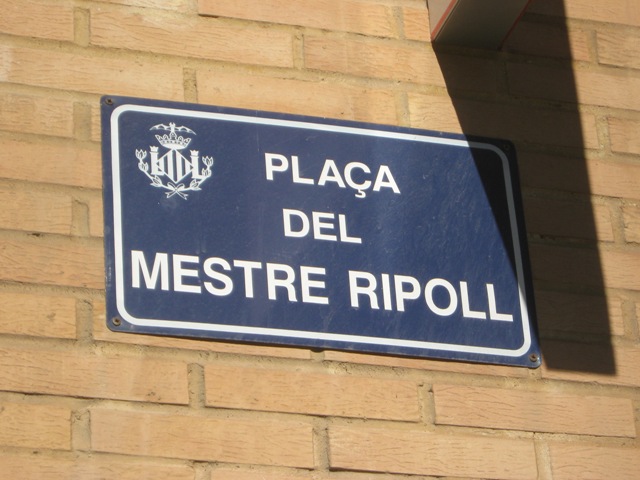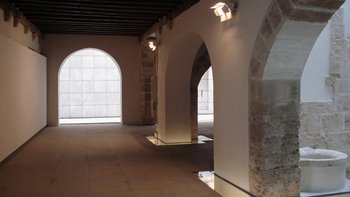AIMPLAS, Europe and the Circular Economy
After more than four years of work, the European project coordinated by AIMPLAS presented its results and recommendations at the final event in Brussels.
Ecodesign and reuse systems for Arçelik washing machines and televisions, collaborative consumption models for ADVA telecommunication equipment, and refurbishment and recycling lines for Lexmark printers were some of the project’s targets.
After more than four years of work, the C-SERVEES Project has come to an end by implementing new circular business models in the electrical-electronic sector. These models aim to promote an efficient circular economy and were tested in the marketing of washing machines, televisions, printers and telecommunication equipment from the companies Arçelik, Lexmark and ADVA. These models are based on ecodesign, ecoleasing and better management of waste from electrical and electronic equipment (WEEE) and IT services.

The consortium of the C-SERVEES Project, coordinated by AIMPLAS, presented its results and recommendations at the final event held on 19 October in Brussels. A description was provided of the demonstrations carried out on the four types of electrical-electronic equipment of the three manufacturing companies to test and validate the new circular economy business models. These demonstrations cover the entire product life cycle from the design phase to treatment of generated waste.
According to the consortium, “The results we have obtained are the first step in the effective implementation of circular economy business models in a sector in which the waste generation rate is growing from 3% to 5% annually. There are still challenges ahead and all the agents in the value chain must stay connected, as we have done within the C-SERVEES Project, to face barriers and take measures in many areas, including the design of equipment, new methods for marketing and use, and new repair, reuse and recycling tasks, without overlooking legislative aspects and user awareness and acceptance”.
In particular, ecodesign criteria with a focus on low-impact materials were applied to washing machines and televisions made by Arçelik, which markets the Beko and Grundig brands, while at ADVA Access Link Monitoring (ALM) systems, the focus was on the energy efficiency and durability of the equipment. When studying printer cartridges and toners by the company Lexmark, ecodesign was explored with a focus on easy disassembly and component recycling.
Reuse, repair and recycling
Reuse and repair of Lexmark products were also analysed to explore new ways to improve printer reuse operations and make this product line more relevant.
Ecoleasing was addressed in greater detail in the ALM demonstration, where different product service systems (PSS) were considered, namely, collaborative consumption models for washing machines and televisions. In this case, the project collaborated with the NGO Emaús to repair and prepare this equipment for reuse, thus fostering an environment of the social economy.
Moreover, research was carried out to improve recycling and disassembly of all target products, which resulted in new disassembly protocols and possible new business lines for recovery of spare parts and components. Demonstrations were also held on closed-loop recycling, which has the potential to become a viable alternative for washing machines and televisions.
In fact, collaboration between Arçelik and recycling companies Indumetal and Greentronics resulted in improved operations for disassembly of washing machines and televisions, and an analysis of the possibility of recovering valuable materials and spare parts from these products at the end of their life cycle. Regarding Lexmark, research in collaboration with recycling companies made it possible to determine the feasibility of a new business line to recover spare parts and reuse secondary raw materials from printers and toner cartridges at the end of their life cycle.
Optimization of product end of life, as thoroughly analysed in the ALM demonstration, resulted in validation of an end-of-life optimization model based on life cycle analysis (LCA) for IT products. ADVA applied it to other products and presented a useful tool to determine the most sustainable life span based on the model of use of specific electrical-electronic equipment.
IT tools and consumer opinion
The project also developed ICT tools that support and improve these new circular business models, specifically, an integrated platform for secure interchange of information between different actors in the supply chain. Thanks to this platform, manufacturers will be able to redesign their products to personalize them and optimize their end of life in accordance with the requirements of users and waste managers. In turn, consumers will be able to improve their consumption habits by adopting more sustainable ones, and waste managers will have access to useful information to facilitate WEEE reuse and recycling, all thanks to the QR code on each product.
The project also aimed to gather client feedback through online questionnaires, in-depth interviews and living labs to understand their attitudes, expectations and experiences in relation to ecodesign, ecoleasing, reuse and renovation, as well as the purchase of secondhand products.
The C-SERVEES project was financed by the European Union under the H2020 programme and involved 10 countries. Together with AIMPLAS and three manufacturing companies (Lexmark, ADVA, Arçelik), other collaborators included the Gaiker Technology Centre, Loughborough University, SAT, RINA Consulting, Emaús, Indumetal, Greentronics, WEEE Forum, CIRCULARISE, Particula Group and Vertech Group. 65% of the consortium members were represented by SMEs and large companies.
About AIMPLAS
At AIMPLAS, we help companies apply circular economy criteria to their business models and turn the legislative changes that affect the plastics industry into opportunities to improve company efficiency, reduce environmental impact and increase profitability. AIMPLAS also does research in areas such as recycling, biodegradable materials and products, and the use of biomass and CO2 with the aim of developing innovative solutions that help solve current environmental challenges.





Recent Comments